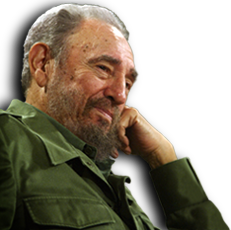Advances, Pending Issues at Cuba-USA Relations
Cuba and the United States have achieved important progress during 2015, despite that the economic blockade against the island still remains, Josefina Vidal, director of the United States Division at the Cuban Ministry of Foreign Affairs, said today.
The restoration of diplomatic relations and the opening of embassies are among the most relevant steps, following the announcement by President, Raul Castro, and his American peer, Barack Obama, on December 17, 2014 about the decision to change the course of bilateral ties, Vidal said.
Cuba's exclusion from the list of countries that according to Washington sponsoring terrorism, the meetings by the statesmen of the two countries, as well as that of Foreign Minister, Bruno Rodriguez, and Secretary of State, John Kerry, were other key moments in the new stage of the two neighboring nations, the official added.
Regarding President Obama's recent statements about his intentions to visit Cuba in the future, Vidal said the President will always be welcome in the Caribbean island, as well as other distinguished statesmen from many countries.
Vidal referred to the increase in high-level exchanges remained in recent months, not only U.S. Congressmen but also ministers and secretaries of the two governments, in addition to the progress in cooperation, air and maritime security, fighting drug trafficking, and immigration.
She informed that talks between both parties on civil aviation were held in Washington D.C. from Dec.14 to 16, and about this issue, she announced that an agreement is possible in a brief period in this section, after also assessing the immediate plans for the restoration of direct mail.
She added that contacts regarding protection of the environment, compliance and enforcement of laws, and cooperation in health issues remain, and dialogue on climate change, mutual compensations, and even human rights, the latter the two sides have deep differences, began.
Vidal contrasted those progresses in the political and diplomatic level with the little achieved in the economic-commercial aspects, particularly the persistence of the main obstacle to the normalization of bilateral relations: the economic, commercial and financial blockade against Cuba for more than five decades.
About this issue, she said President Obama has broad authority, without taking into account the Congress, to eliminate a substantial part of the restrictions that impede the realization of the own measures announced in January and September this year by the Departments of Treasury and Commerce.
Among the prerogatives the president has are the possibility to allow Cuba the use of the U.S. dollar in international transactions and the access to the Caribbean nation to credit to purchase products in a wide range of sectors of the U.S. economy.
She also reiterated that the Caribbean island's authorities deem necessary to normalize relations with Washington: the return of the territory occupied by the U.S. naval base in Guantanamo, the cessation of illegal radio and television broadcasting, as well as the abandonment of intentions to subvert the internal order of the Caribbean island.
She recalled that another vital issue for the Cuban government is the need that the U.S. Congress repeal the so-called Cuban Adjustment Act, in force since 1966, which by providing unique privileges to islanders arriving in the United States, encourages illegal immigration by any way.
Havana also asks the American peer to eliminate the wet-foot, dry-foot policy, which welcomes the Cubans who touch U.S. soil, and the return to the island of those who are picked up at sea before reaching the United States.
All this is part of outdated policies, which are not in line with the will of both governments to move forward and build a new relationship for the good of the peoples of the two nations, Vidal said.
However, these contradictions do not prevent the parties live together in peace, in an environment of civilized coexistence, based on mutual respect, reciprocity, environment in which contacts and negotiations taking place in recent months were carried out, she concluded .
On July 20, 2015, Cuba and the United States restored diplomatic relations and the interests sections in their respective capitals became embassies, which, according to the Cuban government, meant the conclusion of a first stage and in turn marked the beginning of a long process towards the normalization of bilateral ties.




